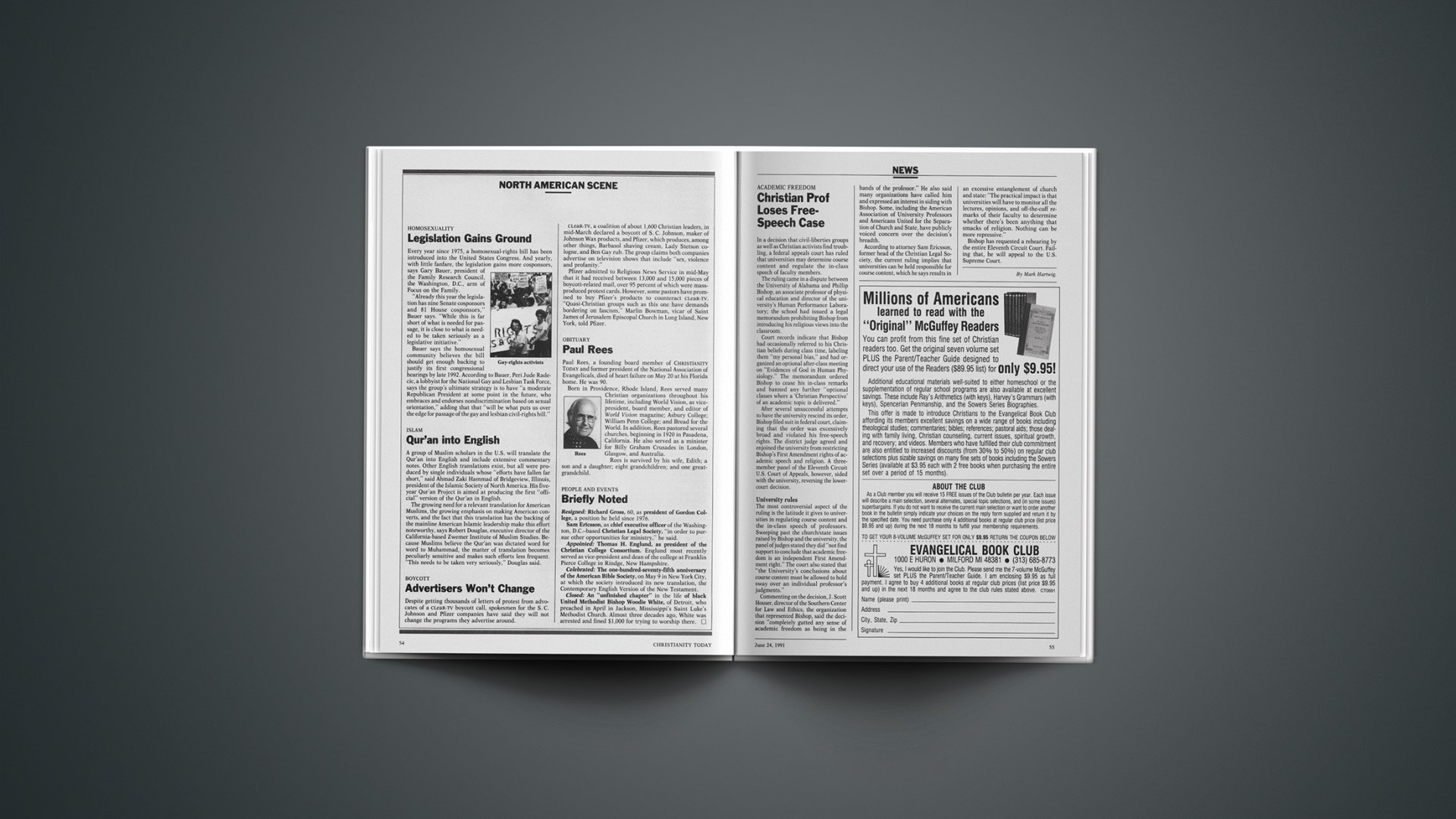In a decision that civil-liberties groups as well as Christian activists find troubling, a federal appeals court has ruled that universities may determine course content and regulate the in-class speech of faculty members.
The ruling came in a dispute between the University of Alabama and Phillip Bishop, an associate professor of physical education and director of the university’s Human Performance Laboratory; the school had issued a legal memorandum prohibiting Bishop from introducing his religious views into the classroom.
Court records indicate that Bishop had occasionally referred to his Christian beliefs during class time, labeling them “my personal bias,” and had organized an optional after-class meeting on “Evidences of God in Human Physiology.” The memorandum ordered Bishop to cease his in-class remarks and banned any further “optional classes where a ‘Christian Perspective’ of an academic topic is delivered.”
After several unsuccessful attempts to have the university rescind its order, Bishop filed suit in federal court, claiming that the order was excessively broad and violated his free-speech rights. The district judge agreed and enjoined the university from restricting Bishop’s First Amendment rights of academic speech and religion. A three-member panel of the Eleventh Circuit U.S. Court of Appeals, however, sided with the university, reversing the lower-court decision.
University Rules
The most controversial aspect of the ruling is the latitude it gives to universities in regulating course content and the in-class speech of professors. Sweeping past the church/state issues raised by Bishop and the university, the panel of judges stated they did “not find support to conclude that academic freedom is an independent First Amendment right.” The court also stated that “the University’s conclusions about course content must be allowed to hold sway over an individual professor’s judgments.”
Commenting on the decision, J. Scott Houser, director of the Southern Center for Law and Ethics, the organization that represented Bishop, said the decision “completely gutted any sense of academic freedom as being in the hands of the professor.” He also said many organizations have called him and expressed an interest in siding with Bishop. Some, including the American Association of University Professors and Americans United for the Separation of Church and State, have publicly voiced concern over the decision’s breadth.
According to attorney Sam Ericsson, former head of the Christian Legal Society, the current ruling implies that universities can be held responsible for course content, which he says results in an excessive entanglement of church and state: “The practical impact is that universities will have to monitor all the lectures, opinions, and off-the-cuff remarks of their faculty to determine whether there’s been anything that smacks of religion. Nothing can be more repressive.”
Bishop has requested a rehearing by the entire Eleventh Circuit Court. Failing that, he will appeal to the U.S. Supreme Court.
By Mark Hartwig.









